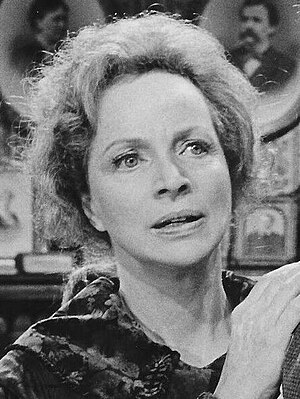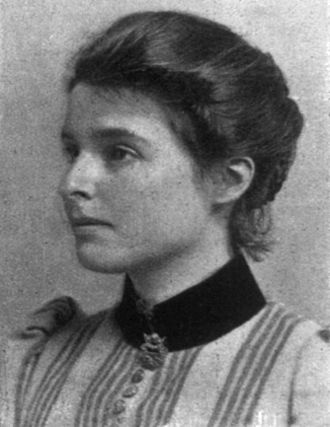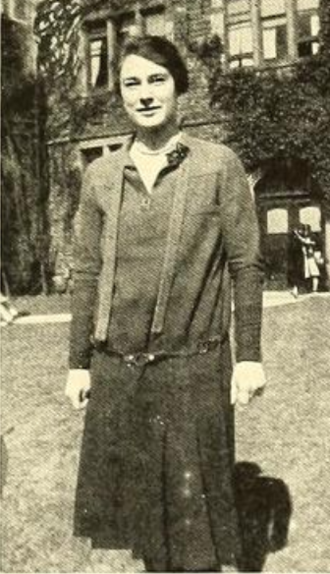Discover Your Roots
SIGN UPDiscover Your Roots
SIGN UPBeatrice is a female given name of Italian origin, meaning "Voyager" or "Traveler". It is derived from the Latin Beatrix, which translates to "blessed one". The name gained popularity through the poetry of Dante Alighieri, who portrayed Beatrice Portinari as a holy and worthy figure. Beatrice is also the Italian form of Beatrix, with variations such as Beatriz in Spanish and Portuguese, and Béatrice in French. Notable bearers of the name include actress Bea Arthur and New Zealand scientist Beatrice Tinsley. The name has seen a rise in popularity in the United Kingdom and the United States. Beatrice also has numerous variations and short forms in different languages and cultures. The name is associated with diverse personalities, from religious figures and scientists to fictional characters in literature and media.

Beatrice Whitney Straight (August 2, 1914 – April 7, 2001) was an acclaimed American actress known for her work in theater, film, television, and radio. Hailing from the prominent Whitney family, she achieved numerous accolades including an Academy Award, a Tony Award, and a Primetime Emmy Award nomination. Straight's career began with her Broadway debut in The Possessed (1939), and she went on to deliver memorable performances in productions like Twelfth Night (1941), The Heiress (1947), and Macbeth (1948). Her portrayal of Elizabeth Proctor in The Crucible (1953) earned her a Tony Award, and she clinched an Academy Award for Best Supporting Actress for her role in Network (1976). Straight's versatility was also evident in her television appearances, with notable roles in series such as Dr. Kildare, Mission: Impossible, and Wonder Woman. Outside of her professional endeavors, Straight had a colorful personal life, marked by marriages, tragedy, and family. Despite her relatively infrequent film appearances, she left an indelible mark with her powerful and poignant performances. Beatrice Whitney Straight's legacy endures as a testament to her exceptional talent and contributions to the entertainment industry.

Martha Beatrice Webb, Baroness Passfield (née Potter; 22 January 1858 – 30 April 1943) was an influential English sociologist, economist, feminist, and social reformer. She played a pivotal role in founding the London School of Economics and was integral to the formation of the Fabian Society. Known for her prolific writings, her most notable works include "The Co-operative Movement in Great Britain" and "Industrial Democracy," co-authored with her husband Sidney Webb, where she introduced the term "collective bargaining" to describe negotiations between employers and labor unions. As a feminist and social reformer, she advocated for women's inclusion in various occupations, campaigned for the unionization of female workers, and fought for legislation to improve working conditions. Born in Standish, Gloucestershire, Beatrice was the youngest of nine daughters and faced personal tragedies within her family. Despite the adversities, she was a self-taught individual influenced by the cooperative movement and philosopher Herbert Spencer. Her marriage to Sidney Webb in 1892 marked the beginning of a lifelong partnership dedicated to shared causes. Beatrice Webb's legacy includes her pioneering work in social research and policy-making, as well as her critical attitude towards prevailing philanthropic ideas. She also collaborated with her cousin by marriage, Charles Booth, in his groundbreaking survey of the Victorian slums of London. Beatrice's impactful contributions continue to inspire social reform and feminist movements.

Beatrice Sparks, born Beatrice Ruby Mathews, was an author and alleged Mormon youth counselor, best known for producing books purporting to be the "real diaries" of troubled teenagers. Her most famous work, 1971's "Go Ask Alice" (credited to "Anonymous"), has sold nearly six million copies. Sparks' books tackle issues such as drug abuse, Satanism, teenage pregnancy, and AIDS, presented as cautionary tales. Despite presenting herself as the editor of the diaries, records at the U.S. Copyright Office list her as the sole author for most of them, suggesting fabrication. Sparks was born in Goldburg, Custer County, Idaho, and grew up in Logan, Utah. She married LaVorn Sparks in 1937 and had three children. After early financial struggles, the family lived comfortably in Los Angeles, where Beatrice contributed to local circulars and church publications. She claimed to have studied at various institutions, but there is no evidence to support this. Sparks allegedly met a young woman who inspired "Go Ask Alice" during her volunteer work at a veteran's hospital in Los Angeles and the Utah State Hospital in Provo. The book was published under the byline "Anonymous" in 1971, and its veracity was questioned by investigators. Later editions contained a disclaimer stating that the book is a work of fiction.

Beatrice Louise Pitney Lamb (May 12, 1904 – December 9, 1997) was an American editor, writer, and advocate. She made significant contributions to various organizations such as the League of Women Voters and the United Nations, and later focused on India, authoring several books and exhibiting her photography. Born in Morristown, New Jersey, to a family with a strong legal and political background, Lamb pursued her education at Bryn Mawr College and the Geneva Graduate Institute, and later earned a master's degree from Columbia University. Her career included writing policy pamphlets and serving as the editor of the United Nations News. She was well-regarded for her intellect, energy, and enthusiasm. Lamb's publications covered diverse topics such as international relations, economic welfare, and India. Personally, she was married to lawyer Horace R. Lamb and had two daughters, one of whom was the mother of actor Christopher Reeve. Beatrice Pitney Lamb's legacy lives on through her impactful work and her contributions to literature and international relations.

Beatrice Muriel Hill Tinsley (27 January 1941 – 23 March 1981) was a renowned British-born New Zealand astronomer and cosmologist. She made significant contributions to the understanding of galaxy evolution, growth, and decline, and holds the distinction of being the first female professor of astronomy at Yale University. Born in Chester, England, she later moved to New Zealand where she pursued her academic and professional career. Despite facing challenges such as gender bias and balancing family responsibilities, Tinsley's groundbreaking research on galaxy evolution garnered widespread recognition. Her pioneering theoretical studies on star populations and galaxy models revolutionized the field of astronomy. Tragically, she passed away at the age of 40 due to melanoma, leaving behind a remarkable legacy. To honor her extraordinary contributions, numerous accolades and tributes have been dedicated to her, including the establishment of the Beatrice M. Tinsley Prize by the American Astronomical Society and the naming of the main-belt asteroid 3087 Beatrice Tinsley. Her impactful work continues to inspire and shape the world of astronomy, and her remarkable achievements are celebrated globally.
All images displayed on this page are sourced from Wikipedia or Wikimedia Commons.We use these images under their respective Creative Commons or public domain licenses. Wherever applicable, author attributions and license information are provided. If you believe an image is used incorrectly or outside its license terms, please contact us so that we can review and correct the issue.